For Mindshare, the entire area of content is very important: Prasanth Kumar
In conversation with Adgully, Prasanth Kumar, CEO South Asia, Mindshare, speaks at length about the evolution in the media planning and buying landscape in India, Mindshare's Content Lab, wins at major awards platforms, the road ahead and more. Excerpts:
How have you seen the media evolving in the last decade?
Media has evolved a lot and it will keep evolving. In the last decade, I think there have been a lot of directional changes that media as an industry has gone through. Whether it is the emergence of digital publishers in media or whether it is the birth of HD on television or how technology has influenced media or consumption behaviour in media. Also, how insights and data have truly pushed some of the practitioners from marketing and media to look afresh at how they run their business. The life for the media planner has changed, the life of the marketers has changed, because consumer behaviour has changed. I think customer centricity and understanding of customers and fulfilling their needs has become a key need of each marketer, who have been pushed to think of radical, innovative ways to reach out to the customers and bring value for them.
Thus, marketers are practising more and more outcome based solutions, which is also seen in the area of content of digital practices and areas of insights. I don’t want to call these evolutions as some properties or content property could have come in broadcast or from publishers. Be it the IPL, Bigg Boss or KBC, we have seen some great content coming in. But to me, the highlight is how the practice of marketing is changing. How we are able to look at consumer needs and have a far deeper understanding. That insight is an engine for more people to think in terms of the entire marketing issues and challenges. That’s what that keeps us excited and I am sure this is going to change more. The influence of technology will keep it going further. From media placements to audience thinking – it will keep challenging people to come up with more innovative ideas. This is an ongoing evolution and we are the most exciting part of this evolution and I am sure if you ask me this question five years from now, I would say the same thing because I am sure it will evolve year on year, month on month.
What are the latest developments in field of media buying and planning in India?
In my opinion, suppose somebody had taken a holiday five years back, say in 2012, and came back today, I am sure that person would be shocked because there have been tremendous changes in planning and buying. There are many different tools and products that are helping people to think differently and, therefore, a lot of curiosity arises to explore different practices. The emphasis is on effectiveness and efficiency, and the responsibility is with us to make the practices more effective or efficient. Earlier, people used to buy and plan for each media, today, we buy and plan for the audiences.
Given the highly evolving and fragmented media scenario, what are the challenges faced by media planners today? How do you take on these challenges?
Media planners and buyers have always faced the challenge of multiple options. Fragmentation is a result of multiple options. And every time you have one more publisher, one more channel giving an option to the consumer. Larger benefit comes to the brand if you are able to clearly practice the right insights and right data, and having a better understanding of consumer behaviour. Today, we have multiple sources. It is not necessary that you look at only a single point data. It can be validated by Data B, Data C or Data D and there is a clear goal for brands to see what they can do to have a successful winning formula for their business. Therefore, the planner looks at data in a more comprehensive and integrated way. These are some of the great turning points. I have seen these taking larger shifts and leaps in the entire practice of planning and buying.
It’s been one and a half years since you took charge as CEO, South Asia at Mindshare. What would be the key developments during your tenure or what are the key changes that you have brought about in the agency?
I have been part of GroupM for 13 years. It was in February last year that I took charge as CEO, South Asia, Mindshare. I got my team restructured a bit. I got some of them to play to their strengths, which means bringing about some changes where they were good at and focussing on them. For example, MA Parthasarthy became the Chief Product Officer; Vinod Thadani was made Chief Digital Officer; and we got on board Deven, who became the Content Head. They are some of the vertical heads. That’s the leadership structure, and then we focussed on the clusters, wherein we had the clusters under each unit that became a bit more composite and, therefore, a clear plan on how we can work on each of the clients. I think one large change that we brought in was that we all became more focussed on outcome, more focused for brands. So, it is about earning success through brands’ success. And if you are able to bring in that, I think everything else becomes a means to get in more disruption and impact. A lot of energy has gone in and there is a lot of hunger to innovate, and all this has happened as a team. This brought in the results and that became infectious. And that’s where we are able to see the momentum.
Has it also allowed you take more risks?
It is not a risk. Other people might think of it as a risk, but when the world is changing and when you are rightfully the leader by far in the industry, a certain sense of responsibility rests with you in also changing the world. And the faster you recognise and realise that, the faster you may want to transform yourself, which has been our journey. If we want to transform ourselves, we will need practices, more solutions and initiatives, and in many forms that would probably never ever been thought of in the industry. And if you want to do that, there is a lot that needs to be created and co-created – be it the framework or the processes. And in all that what is important is how you are able to get the right talent and the resources on board. In this industry, the talent force is the primary aspect. Therefore, a lot of diversity in thinking is required to clearly articulate this transformation. This is what we have been doing.
That is why you have seen in the last couple of years that most of the things that we are trying to do are different aspects, whether it is through a larger ecosystem or through different thinking or different technology. It doesn’t matter. I mean there is space to commit mistakes, which is what I keep telling our people. If you don’t commit a mistake, that means you are not taking risks, which in turn means that you are not trying something new. Having given that space to our people, we are seeing a huge difference. Success is a relative term – in terms of not failing. As long as you can define what is not failing, you are successful. It is also true that we are not afraid of our failures. Because at least I know that what it takes to fail and, therefore, I can define my success much better.
Client support and encouragement is the bedrock of our success. In fact, they push us to give our best. When they see value in our commitment to give the best, I have seen clients opening up everything and there is no difference between us and them, and it is one team. If you are able to co-create that magic, it just brings in one question – why are we doing all this? We are doing all of this to make sure that brands are becoming successful. We have a fantastic business at the client’s side. It becomes a collective success. The moment you synchronise that, you see more collaboration, more ability to do different things and bring about powerful changes within the business schemes.
Mindshare India won the Grand Prix Glass Lion at Cannes this year for creating India’s first transgender pop group, the Six Pack Band, in partnership with Brooke Bond Red Label. How are you taking forward this initiative?
The Red Label journey is a continuous one. The team keeps on innovating and will continue to do so. Some of it you have already seen and some is beyond the Six Pack Band. The primary aspect is the fact that there is a comfort in the community and society and, therefore, how do we and the society get to answer that. Thus, that became the philosophy of the brand, and that is what the entire Six Pack Band thinking has brought in. The interesting part is that we also can see the second addition of content here. The journey of getting greater ideas, greater solutions for the brands are culminating. This was not done with an eye on any awards. It so happened that the work got recognised and it has done wonders. What has inspired us is that the team understood that you don’t have to make work only for awards, but for brands. It will by default win many recognitions. So our focus has been primarily on that. We need to focus on each ball. If we are able to pay each ball well, we will win the match for sure.
Mindshare recently launched a Content Lab. How are you looking at popularising content as a key player?
At Mindshare, we have Content+, which is a content unit focussing on bringing value from creativity. In that context we also launched the Content Lab in association with Culture Machine, one of the tie-ups that we have done. And this is again in the area of how we can make better content and communication platforms for the consumer. It is not just an idea, it is also about how you are able to get some great insights about the tastes of consumers, what do they really like, what they engage with more, and all of these are actually food for thought while creating a communication. Serving it in real-time, with a much faster turnaround time and the ability to convert them into bigger ideas and technology influence is what makes it so exciting. The reason why we are calling it a Lab is because we are also experimenting. I think it is a space where you can experiment and try out new radical things, learn from it and then create what is best for the brands.
For us, this entire area of content is very important. What is making a big difference is how you are able to bring in the magic of insights and technology to the entire content space. I think deeper understanding of customers and the ability to turn insights and wonderful ideas getting married to create the magic of content is becoming more and more particular. We have good talent, there are almost 40-50 people in the content team. We have the products and good tie-ups, hence, we need to create this magic more and more, and some of the great frameworks have only helped us to excel.
We have been doing some great work on it – be it on the Fulcrum side or Pepsi, Diageo, a movie called ‘Guru’, a Marathi movie for Bagpiper, Nike’s recent ‘Da Da Ding’ campaign with Deepika Padukone. These are only inspiring us to do more and more good work.
How did you choose Culture Machine as the partner for the Content Lab?
Culture Machine and we have come together to launch Content Lab. It is a co-created product. There are a lot of capabilities that we saw in Culture Machine. We have formed this particular partnership to figure out how it can create more value for our clients. We have similar co-created products with many partners. For us, the vision is Content+, the Content Lab is a subset of that. We see the Content Lab as a space where people can come and experiment with great ideas and try out which one is working, what are the different tastes of consumers and thus, bring larger essence of creating right content for brands.
For Content Lab, Culture Machine and Mindshare have come together to create cases and ideas which we share with our clients. We strongly believe that this will bring more value to our clients.
Are there any such social initiatives in the pipeline and are you in talks with any clients to adopt them?
There may be many. The nuance is in the consumer word. Commoditising them is not advertising. I think there is an important message being sent and the appropriate treatment to receive that message is where the creativity lies. I think we have been lucky to do some of these projects for brands. At any given time, we will be searching and doing the right things.
Mindshare has recently been retained to handle the media duties of drinks major Diageo in India and South Africa. What is the significance of retaining the account?
It’s been great. For Mindshare, we have been celebrating relationships with clients for many years now. We celebrated 20 years with Unilever last year. We have a host of clients with whom we have been celebrating 10 years. Diageo is one of those clients with whom we would be celebrating more than 15 years. It is also the continuity, the integrity of understanding and how business has been changing every 2-3 years. In that entire journey – the process of pitches, a particular process from a business standpoint – it only reaffirms our thinking and gives us an opportunity to do even better within the relationship.
GroupM has always been successful at the EMVIEs. Could you shed some light on the importance of having a right team in place to be successful?
I think having a good team is always a great thing for any captain. The captain’s job is essentially to ensure that we have the right players to play the right role. I have been very lucky in this regard, and as an entire team our energy has been about how we can bring out the best in ourselves. We know that there is a lot of potential in the entire Mindshare team and we constantly endeavour to inspire each other and collaborate with each other to give our best. I still remember that two years back when we all got together, we had said that we need to build a team that will truly challenge itself. I think fear is something which should not be there, only then will our game improve and we can fun in the game. That is the bedrock of the team, why we can do wonders. And that’s exactly what we have done – doing disruptive work, with no fear in our attitude, the ability to challenge ourselves, the ability to question if we are not clear, and focus. Then we see the outcome. These are some of the mantras that we have been following. When we clear each milestone one by one and get the recognition for our efforts, it inspires us to do more.
What does it take to be a leader?
I strongly believe that it requires a lot of confidence to be a leader, along with inherent values of collaboration and collective influence. We as a group have always invested in and inspired people to take up these values. We also encourage them to experiment and try and take leaps in whatever they do. In true organisation fashion, I think that is a great value that the organisation has been building. I see this only getting more and more strengthened. As I said earlier, a good proof of that is a sense of responsibility in being the leader. We challenge each other and we also get excited by the challenges that our clients and our partners bring in. I don’t think that today our thinking is confined to a single medium. Because we are looking at reflexes of what we do and that can only come if there is an army of leadership.


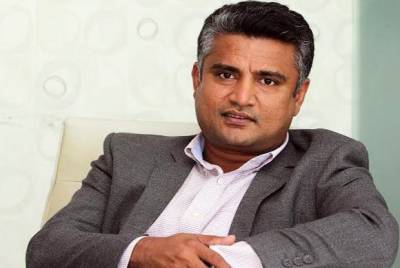

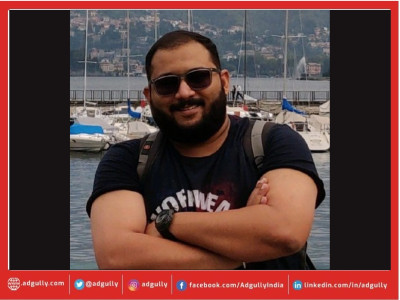

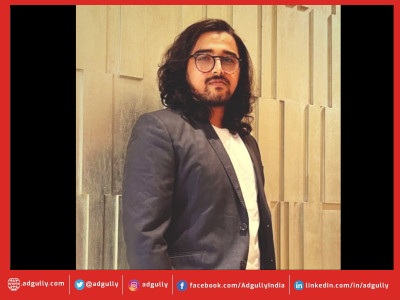
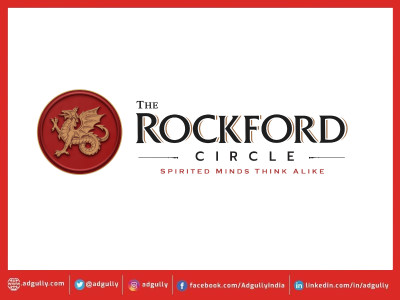

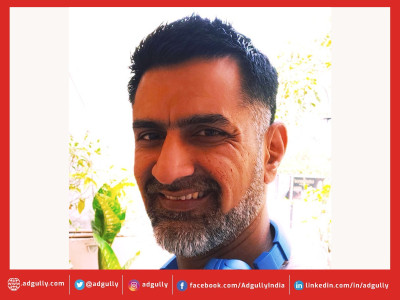
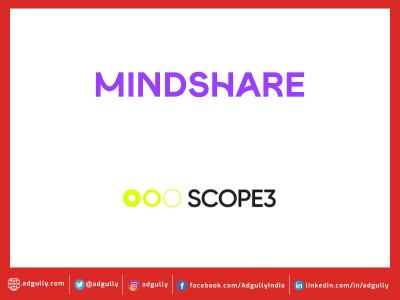
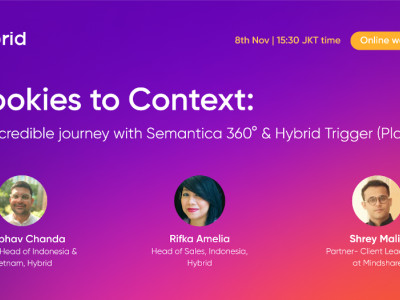
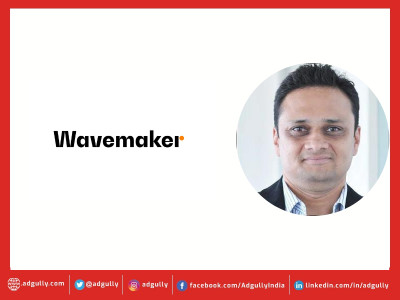
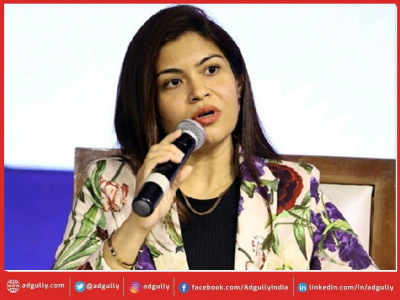
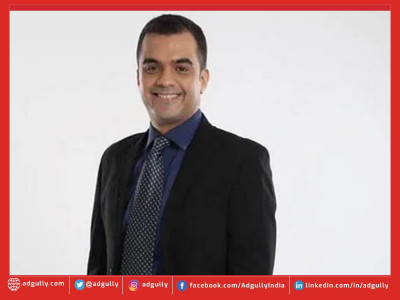

Share
Facebook
YouTube
Tweet
Twitter
LinkedIn